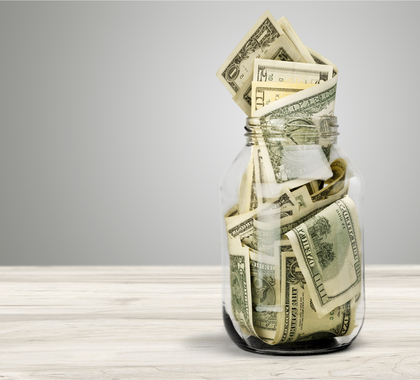Congress passed the $2.3 trillion CARES (Coronavirus Aid, Relief, and Economic Stimulus) Act this past week. Washington passed two measures providing relief and economic stimulus after the financial crisis. Many economists feared that the financial bailouts set bad precedent for the future. Could the CARES Act possibly have similar effects?
Accidents happen less often when people exercise care. Taking out insurance can increase the probability of the accident or loss, what is called moral hazard. The response involved is straight forward: insurance lowers the return to being careful, so on average people are less careful.
Government bailouts after the financial crisis could easily produce moral hazard by contributing to expectations of future bailouts. Once financial institutions know that Uncle Sam considers them “too big to fail,” they will not fear getting in a bad spot. The expectation of bailouts creates a “Heads I win, tails you lose” scenario and banks will naturally take more risks.
Bailouts also help bad managers keep their jobs. In markets, profits reward good investments and decisions while losses penalize bad decisions. Fairness demands that if investors get the profits from good investments, they should bear the losses from bad investments. When investors take losses, they force the replacement of the executives responsible.
Taking the latter point first, I do not think that the managers of airlines, hotels, and department stores should have anticipated recent events. By contrast, the financial institutions which made or invested in subprime mortgages and mortgage-backed securities should have known the risks involved. The CARES Act is not allowing bad managers to avoid the axe.
Nor am I worried that this assistance will lead to future carelessness. I suspect we will all now be aware of how a pandemic can disrupt life. Individuals and businesses will likely save more going forward. But if COVID-19 is a once in a century event, we do not need to worry about undermining incentives to prepare for the next such catastrophe.
A factor favoring assistance here is the impact on businesses of governments’ actions to mitigate the pandemic. The businesses ordered closed by governors or mayors arguably should be compensated for their losses. This does not mean that closing businesses is unwise, merely that compensation for the ensuing losses is deserved.
It is not completely true that businesses could not have done anything to avoid financial losses. Companies can get business interruption insurance coverage for lost revenue. Whether existing interruption coverage will pay for pandemic-related losses is a question likely heading for a courtroom.
Insurance, however, would not have saved us. Prior to this pandemic, neither business executives nor insurance companies could have imagined the potential losses or reasonably estimated the likelihood of this type of pandemic. The coverage would not have been priced properly, leaving insurance companies facing bankruptcy and unable to pay claims. Business interruption coverage would simply mean we would be bailing out insurance companies.
The primary downside of the CARES Act is its impact on the national debt, which is currently $23 trillion. The Congressional Budget Office was forecasting a $1 trillion deficit this year before the pandemic. The COVID recession will reduce tax revenues sharply even without any additional spending. The U.S. may be on the verge of a debt spiral, where interest on the debt drives us further and further into debt. COVID and CARES may push us off the fiscal cliff.
If so, the blame would fall on Washington’s unwillingness to live within its means. The deficits of the past five years have been irresponsible, not the response to the pandemic. Our leaders may have left us with insufficient credit to address a true national emergency.
The border between science fiction and reality is fuzzy. Our minds can imagine many cataclysmic events, and it would be folly to prepare for them all. We will always be unprepared for events we do not think could really happen. So it is unlikely that the CARES Act sets a bad precedent.




